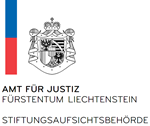Essential characteristics of a foundation
As referred to in this section, foundations are legally and economically independent special-purpose assets which are formed as a legal entity (juristic person) through the unilateral declaration of will of the founder. The founder allocates the specifically designated foundation assets, stipulates the purpose of the foundation, entirely non-self-serving and specifically designated, and also stipulates the beneficiaries (Art. 552 § 1(1) PGR). This legal definition contains the three essentialia negotii of the formation of a foundation. These are: 1) the intention of the founder to form a foundation, 2) the stipulation of the purpose, and 3) the dedication of specific assets.
Intention of the founder
The basis for the foundation is laid by the intention of the founder declared at the time of formation; this intention of the founder provides the permanent framework for acts by the executive bodies of the foundation (“principle of solidification”). The founder has the right, however, to reserve certain rights to alter the foundation by specifying them in the foundation deed at the time of formation, such as the right to revoke the foundation or to amend the declaration of establishment. These rights cannot be transferred or bequeathed (Art. 552 § 30(1) PGR). To prevent circumvention, legal entities may not reserve the right to revoke the foundation or amend the declaration of establishment.
Purpose
A key component of the declaration of establishment is the stipulation of the purpose of the foundation by the founder at the time of formation. The stipulation of the purpose of the foundation may not be left to an executive body of the foundation, and it may be amended by an executive body only under certain conditions (Art. 552 § 31 PGR) if provided for in the foundation deed. Otherwise, the purpose may be amended only by the judge in special non-contentious civil proceedings if the legal conditions are met (Art. 552 §§ 33 and 35 PGR).
The open-purpose principle applies under Liechtenstein foundation law. The founder may define any permissible purpose, combine several different purposes, and stipulate whether these purposes are to be pursued simultaneously or successively. The stipulation of the purpose must necessarily be included in the foundation deed. With respect to the tangible beneficiaries, or beneficiaries identifiable on the basis of objective criteria, or the category of beneficiaries, the foundation deed may also refer to a supplementary foundation deed where these matters are regulated.
According to Art. 552 § 2 PGR, common-benefit and private-benefit foundation purposes are distinguished. A common-benefit foundation is a foundation whose activity according to the declaration of establishment is entirely or predominantly intended to service common-benefit purposes in accordance with article 107(4a) PGR, unless it is a family foundation. In contrast, a private-benefit foundation is a foundation which, according to the declaration of establishment, is entirely or predominantly intended to serve private or personal purposes. Predominance is assessed according to the relationship between services provided to serve private-benefit purposes and those serving common-benefit purposes. If it is not certain that at any given time the foundation is entirely or predominantly intended to serve private-benefit purposes, it is treated as a common-benefit foundation.
Foundation assets
According to Art. 552 § 13 PGR, the minimum capital of the foundation must be CHF 30,000 or EUR 30,000 or USD 30,000. The minimum capital must not only be dedicated, but also actually paid, and the foundation council has to confirm that the statutory minimum capital is at the free disposal of the foundation (Art. 552 § 19(1) PGR sentence 3, Art. 552 § 20 (2)(11) PGR. The independent assets are no longer considered the private assets of the founder and henceforth constitute the assets of the foundation.
Only assets amounting to at least the statutory minimum capital have to be dedicated in the foundation deed (Art. 552 § 16(1)(3) PGR). Other dedications of assets may be made in the supplementary foundation deed or also at a later time.

